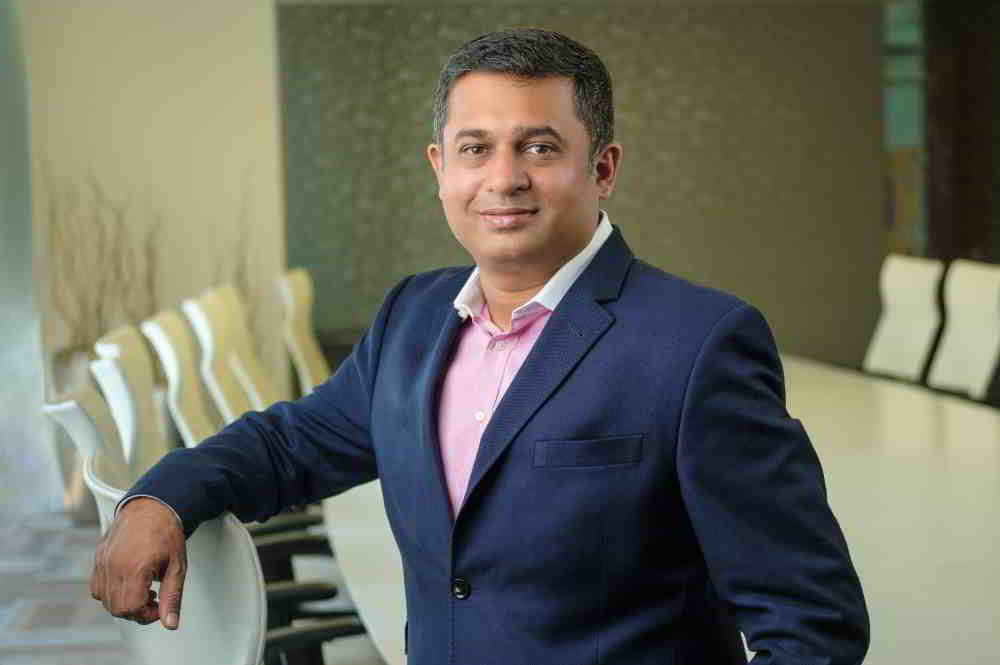Dr. Joseph Reger, Chief Technology Officer-Europe, Middle East, India & Africa, Fujitsu met us on the sidelines of CeBIT in Hannover last month. He talks about digital transformation and his company’s vision of human-centric innovation. He believes that people are a key aspect of this innovation.
He also talks about the CMO as the chief innovator in the organization and the emergence of the Chief Digital Officer.
–Brian Pereira
Q. Do you see many CIOs transitioning from IT leaders to business leaders?
Dr. Reger: I think that move will not work for many CIOs. That move requires different skills than what they used to have. While most CIOs yearn for this boardroom level and strategy role in the organization, there are many CIOs who became very good at what they do, day-to-day: Operations management, infrastructure management, cost management etc. So why would every CIO want to move into a business-oriented or strategic role? They are good at their old jobs, and if you transition roles they will be overstretched.
If this happens with the position, it will require a generational change in CIOs, but not the same person. It would have to be someone who has a stronger business background and a different set of skills.
But there is a new emerging role that is referred to as Chief Digital Officer (CDO). This role also asks for a change of profile and a change of skills that cannot be satisfied by the same people. It is quite unlikely that a CIO could transition into a CDO role. A person who tries to fulfil both roles will have to be bipolar.
But a CMO transitioning to this role is certainly possible. In some companies, the CMO is starting to spend almost as much money (on technology) as the CIO. But this is not on infrastructure – it is a technology of the new kind. The CMO does not have a data centre; he is using the company credit card and buying services like analytics from the cloud.
But guess where the innovation projects are coming from? It is from the CMO. So I believe there will be at least as many CMOs transitioning into that fold. That’s because businesses want reckless and ruthless innovation, and CMOs are well positioned to do that.
 Q. As an MNC how do you see India as an investment destination? What type of business operations do you run in India?
Q. As an MNC how do you see India as an investment destination? What type of business operations do you run in India?
Dr. Reger: India is a huge and dynamically growing nation. In terms of the economic opportunity, it cannot be ignored, and therefore Fujitsu is keenly interested in building its business in India. But the scale of the nation and the economy is interesting. It could pose problems that require very special technology solutions, with scaling capabilities.
For Fujitsu, India’s sales operation is part of the European region. Obviously, you do have the off-shore capabilities. But Fujitsu views India as a sales territory for the normal business that we do, and that is products, solutions and services, applied to the Indian customers. We would like to grow organically.
However, there is a lot of local talent in India and our solutions and project business can profit enormously from that. I am very keen on projects and solutions that address business needs, and not just products and services.
Q. Would you be open to working with the Government of India on infrastructure development projects like Smart Cities?
Dr. Reger: Absolutely. Fujitsu is already doing that elsewhere in the world. We are doing this in Vietnam and Myanmar. In both cases, there was strong government interest to work with Fujitsu, as they recognised that we have unique values. Being a company of Asian and American origin is a value to them.
If that’s the case with the Indian Government, then we would be very responsive.
 Q. What are your views on Digital Transformation and the manner in which companies are embracing digital solutions and platforms?
Q. What are your views on Digital Transformation and the manner in which companies are embracing digital solutions and platforms?
Dr. Reger: Some people think that the purpose of digital transformation is to create a digital economy and a digital society, or a digital business. I don’t believe that.
A digital business does not have an analog product. Facebook, Google and the online gamers are all digital businesses.
So we are really talking about digitalized businesses. Certain aspects of the business can be digitalized but not the whole business. In auto manufacturing, for instance, the production of the car is the analog element. But everything before that – design, idea generation, open innovation – and the things after production, maintenance, collecting all the data of operations, recycling etc that feeds information back into production – can all be digitalised. But not the product itself, which is analog. That is digital transformation to me.
This is extremely important for us in Europe and Japan because we have all these old industries and we have to modernise them and give them a new life. We have to digitalize all parts except the product.
Q. How does all this fit in with Fujitsu’s vision of Human-Centric Innovation?
Dr. Reger: Most companies will tell you that you need to do two things right for a successful digital transformation: Information and Infrastructure. Fujitsu says that too, but we add the third element: People.
We believe in two things. We’ve got to do this whole transformation and the technology development in such a way that it helps people to achieve their goals, and business and society to provide a better future for mankind. That’s the human-centric intelligent society.
And the human-centric innovation means two things: It is done for the people, for the benefit of the people. But it also provides opportunities, technologies, facilities, and help so that people can do the right innovation.
If this is taken seriously and companies and nations accept and implement it, then people in any country, small or large, developed or less developed, will be able to contribute to the innovation that’s happening in the world.
India is large but not that well developed, so your challenge is scaling it up. And that means the way you exchange information, the way you work remotely, and contribute to companies that are thousands of kilometres away. Your people have the right skills to do that, and Fujitsu has the enabling technology.
So human-centric innovation is done for the people and by the people.
—————————————————————————————–








